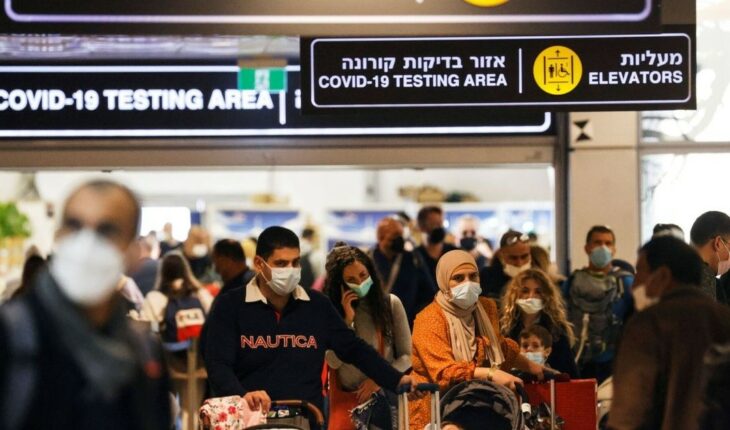A week before Christmas, restrictions are multiplying again in the face of the Ómicron variant of the coronavirus, with a confinement in the Netherlands, and the cancellation of parties and closure of cultural sites in other countries, while pressure on the unvaccinated grows. The variant, identified a month ago in South Africa, has been detected in more than 85 countries and is advancing rapidly in Europe, where it could become dominant by mid-January, according to the European Commission.In the Netherlands a lockdown will begin this Sunday, Prime Minister Mark Rutte announced yesterday. All non-essential shops, restaurants, bars, cinemas, museums and theatres must close until 14 January. In the United Kingdom, which recorded a record number of infections (93,045 cases) for the third consecutive day, the mayor of London, Sadiq Khan, said he was “very concerned” about the spread of omicron, dominant in the British capital, and launched an alert procedure to coordinate public services. In France, the government has asked mayors to cancel concerts and fireworks planned for New Year’s Eve. In Paris, the cancellation of celebrations on the Champs-Elysées was announced on Saturday.In Ireland, bars and restaurants must close at 20:00 from Sunday, and the measure will be maintained until the end of January. Denmark will close for a month (starting Sunday) theaters, cinemas and concert halls, as well as amusement parks and museums. For its part, in the Americas, Québec will apply limits on the number of people in bars, restaurants and shops. In New York, which in 2020 was the global epicenter of the pandemic, Brooklyn restaurants are closing one after another due to an increase in infections. On Broadway, the famous neighborhood of theaters and musicals, there are scenes of panic due to the cancellation of functions due to positive cases in the casts. In Asia, South Korea on Saturday reinstated mandatory lockdown hours for cafes, restaurants, cinemas and other public places, and private gatherings must be limited to four people. Travel restriction measures also came back into force over the weekend. Some European Union (EU) countries, such as Ireland, Portugal, Italy and Greece, require European travellers, including those vaccinated, to present a negative covid-19 test. Germany, which on Friday classified France and Denmark as “high-risk” areas, will impose a quarantine period on unvaccinated visitors. From Sunday, the measure will also apply to Norway, Lebanon and Andorra. In addition, it classified the United Kingdom as a country at very high risk of COVID-19 so those arriving from the United Kingdom will have to do a mandatory quarantine of two weeks, including people vaccinated or cured of covid-19. Turkey will send 15 million doses of coronavirus vaccines to Africa, President Recep Tayyip Erdogan announced on Saturday, adding that low vaccination rates on that continent were an “embarrassment to humanity.”
New wave of COVID: restrictions grow due to the advance of Ómicron in the world
December 20, 2021 |





